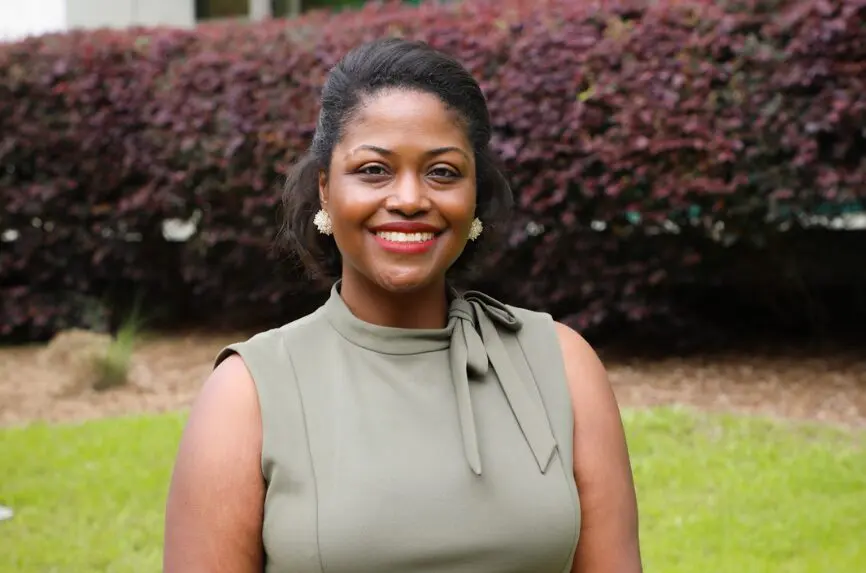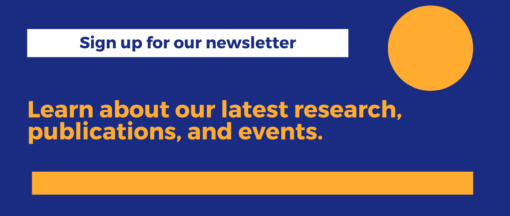Hastings Center News
Bioethics Chats: Keisha Ray
Keisha Ray, PhD, is an associate professor with the John P. McGovern, MD Professorship of Oslerian Medicine at UT Health Houston’s McGovern Center for Humanities & Ethics. She serves as associate editor for the American Journal of Bioethics and senior associate editor for the Journal of Medical Humanities. She is a Hastings Center Fellow and an advisor to The Hastings Center for Bioethics Sadler Scholars. The author of Black Health: The Social, Political, and Cultural Determinants of Black People’s Health, she is a prominent writer and speaker about health equity. Keisha chatted with Vardit Ravitsky about the “identity crisis” she sees in bioethics and how the field needs to change with the times. The conversation has been edited for clarity.
Vardit: What are some hot topics you see in bioethics today? And how do they affect your work?
Keisha: I’ve made calls for bioethics to care more about things like racism, sexism, classism, ableism, and medical discrimination because I think they are important in and of themselves, but they are also underlying issues in many of the more specific topics we concern ourselves with as bioethicists, such as access to healthcare, reproductive rights, and end-of-life care. If we analyze, speak about, and advocate for policy change for these societal issues we would be honoring the social justice roots of bioethics. But to me these issues are more than hot topics because that suggests they are fleeting issues. Instead, they represent ongoing real problems that affect health and well-being of so many people.
In addition, there’s the question of the scope of bioethics. Does bioethics have the tools to meet demands to discuss contemporary issues like war, discrimination, transgender healthcare, immigration, nationalism? I’m not sure. I don’t know if we’re asking bioethics to be something it’s not equipped to be. But I think it is possible and I am hopeful that we can do things a little differently. I wonder if bioethics is having an identity crisis.
Vardit: An identity crisis? Say more.
Keisha: Bioethics is made up of people from all over the professional world—lawyers, philosophers, clinicians—and we’re all supposed to come together and speak on current and notable political, social, and cultural issues that affect health and well-being. But this is super-expansive. That would literally mean every topic across the globe. I am not sure if the foundations of the profession, our tools, and what we know are equipped to do this well. Should we limit our purview? Should we just do our best to speak on current issues? Should some topics be left to experts in other fields?
In the face of a global community and global interconnectedness, and an ever-growing list of topics that we care about, bioethics seems to be in a transition period and it’s hard to know exactly what bioethics is and what it should be with so many social changes around us. Are we asking bioethicists to be everything to everyone? That would be impossible.
Vardit: You just spoke about what has been keeping me up at night: Should we expand bioethics to address broader challenges – such as the impact of war on public health – or would that dilute our expertise and make us less effective as a field? Where do you find yourself in this debate?
Keisha: If you want to stay relevant, you have to talk about what is currently impacting lives. And if that is a political conflict or a pandemic then that’s what you talk about. The origins of bioethics were about speaking for marginalized populations. Just because we’re in different political, social, and cultural climate doesn’t mean we stop evolving. And whether our current political and social climate is really that different than the climate that originally birthed bioethics is questionable. But social upheaval pushes us to be better because we have to. We don’t have a choice but to adapt. We have too much intelligence, too much training, too many good people doing good work to only talk about the basic bread-and-butter topics of bioethics. We must grow to stay relevant and actually help people.
Vardit: Recently, in class, my bioethics students wanted to talk about reproductive justice in the current political context. And it raised for me the challenge of how to address such polarizing topics when I don’t know each student personally, I’m not sure what their values and political orientations are. How far should we go in addressing issues that are highly controversial?
Keisha: Good question. I’ve run into this issue many times and at different universities with various cultures and religious and political affiliations. I travel to do about two invited lectures a month, sometimes more. I talk about health equity, medical discrimination, environmental injustices–very controversial issues at the moment, even though they shouldn’t be. Sometimes I get pushback from universities questioning if they should cancel my talks. Or the leadership doesn’t show up because they don’t want to be associated with health equity. I have to navigate things like this very often.
I usually give the facts first, and then I pose questions that listeners can use to analyze the topic and decide their stance. I never tell anyone they are wrong for their belief. But I am hesitant to offer my own opinions, given the political climate in academia at the moment. So, when controversial topics come up in settings I am not familiar with, I pose probing questions and allow people to speak their mind as long as they don’t harm someone and push false information. But I also push them to think about the topic beyond their own opinion.
And I also connect them to published articles and books written by people who know much more about the topic than I do. I think this is what bioethics can offer the moment—a way for people to connect, despite having different opinions, but with a focus on facts and a willingness to listen and learn.
Vardit: How do you do that—and, in doing so, how do you help push the boundaries of bioethics?
Keisha: There’s no consensus. We all come from so many different backgrounds. The best I can do is say, given what I know about bioethics and its origins and principles, here is what I think. I cannot speak for other people. I can’t even speak for bioethics as a profession. I can speak for myself as one of the many representatives. I’m a Black woman in this political climate. I’m an academic, but I’m also a person. I have to think about my well-being and my sanity and my safety. I’m balancing what I feel is my duty as an academic with my sanity and my self-preservation.
Vardit: What do you do to relax, to sustain yourself?
Keisha: Comedy shows! I love stand-up comedy. I go to many shows a year and I watch stand- up specials on Netflix and Hulu and on other streamers. It’s a good way to see humor across divides in the times we’re living in and see how humor connects us because there are some things that are just funny regardless of your culture or political beliefs. A lot of comedians use humor to make sense of the world, which is very helpful for me, because the world can be a lot of gloom and doom and comedy can help me see the humor of it all. I’m also getting back into running, which is rough in this Texas heat, but I am trying. I read a lot of sci-fi books, too. I find solace in reading about robots and science and how the world could be so different.
Vardit: We share a passion for comedy! Who are your top comedians?
Keisha: Mo Amer. Ralphie Barbosa. Jim Gaffigan! He’s this older Catholic dude with a bunch of kids, and he talks about the natural comedy that comes from having a large family. I don’t have kids, but I just think he’s hilarious. Some things cross the no-kids divide! I also like Sam Jay, John Mulaney and Ilana Glazer. Many, many others. Too many to name.
Vardit: What advice can you give to someone starting out in bioethics or early in their career, who wants to have impact in the ways we discussed?
Keisha: Question what moves you, what you’re passionate about, and let that guide your research, even if it takes you a long time to get there–even if you decide to change topics like I did and have to start over when you’re almost at the end. I have no regrets because it put me where I am today. I let my values guide my work, so on those days when the work gets heavy– and it will if you are working on a topic you are passionate about–I can rely on my passion to get me through. It won’t feel like a chore, but a privilege to do this work and help people where I can.
Vardit: Thank you, Keisha. You’ve given us a ‘call to action’ to help bioethics do what it has done for more than half a century—meet the moment and address the ethical issues of our time.

